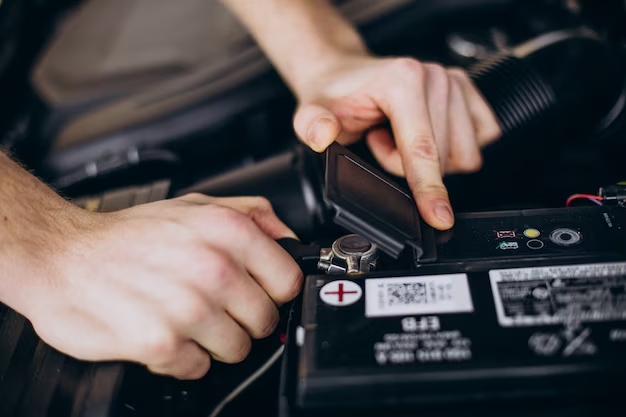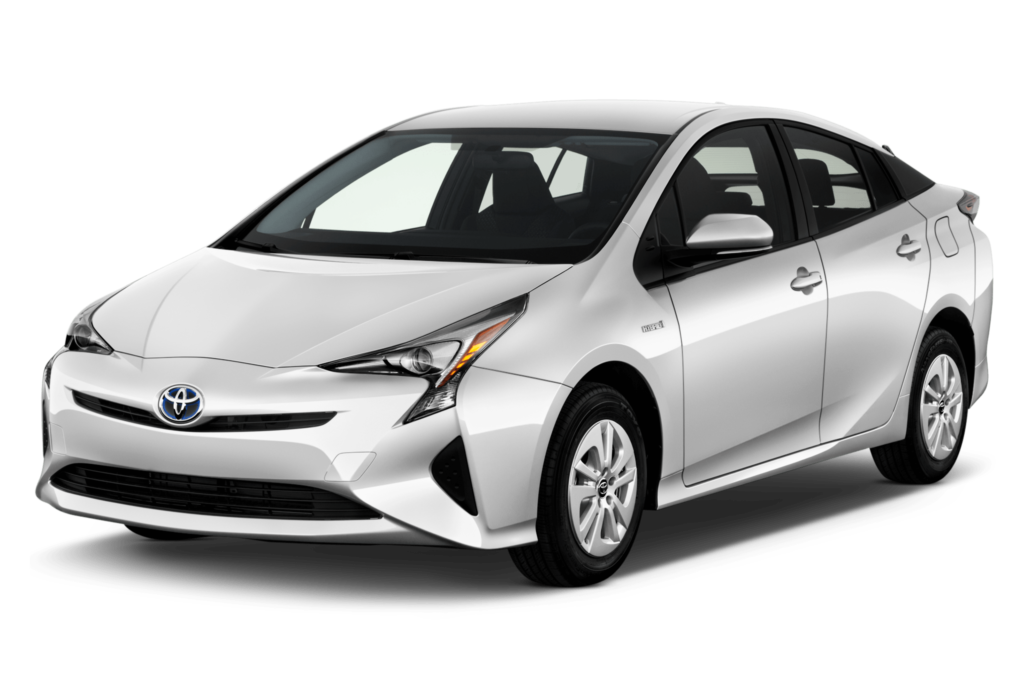Understanding Hybrid Vehicle Batteries
Hybrid cars are very popular among drivers that want to save money on fuel while at the same time reduce carbon emissions. Among the main components of hybrid cars is the hybrid battery, which supplies electricity to the electric motor. Like any other component of a vehicle, hybrid car batteries have a lifespan and can produce problems.
When your hybrid battery starts acting out—fewer miles per charge, less efficiency, or a myriad of lights in your dashboard there are generally two choices: fix it or replace it. The following guide takes a deep dive into hybrid battery repair and replacement, looking at the costs, pros, cons, and more as you consider the best decision for your car.
The Basics of Hybrid Batteries
As a prelude to discussing whether hybrid batteries should be repaired or replaced, let’s briefly understand what the composition of hybrid batteries is and why they require maintenance in the first place.
Hybrid batteries are mostly composed of separate cells, which will work together in storing and then releasing electrical energy. These cells are connected together in a series to form the battery pack powering the electric motor of the car. With age, temperature, and driving conditions, these cells eventually degrade. At this point, repair and replacement come into the picture.
Signs Your Hybrid Battery Needs Attention
- Reduced Driving Range: The most common sign that your hybrid battery is losing power is a significant reduction in the driving range on electric power.
- Dashboard Warning Lights: Most of the hybrids have inbuilt battery warning lights that identify the problems inside the battery pack.
- Reduced Fuel Efficiency: If your car’s fuel efficiency reduces and you consume more gasoline, then it is a symptom of hybrid battery issues.
- Battery Drowning Too Fast: If your vehicle’s battery drains faster than it should, this may be a sign that the health of your hybrid battery is in question.
Hybrid Battery Repair
When your hybrid battery is found to have gone wrong, repairs to the currently installed battery make for a relatively cheaper and efficient move, especially with issues that call for individual-cell or minor system faults. Such common repair possibilities include:
a. Hybrid Battery Cell Repair
Most hybrid battery packs contain multiple cells, and generally, only a few cells go bad at a time. Hybrid battery cell repair involves identifying which cells are faulty and replacing only the bad cells.
Advantages:
- Lower Cost: Cell repair is one of the most inexpensive methods with a cost of almost £400 and £800.
- Rapid Turnaround: Most repairs can be completed within one day, thus saving your downtime with your car.
- Focused Solution: Since only the damaged cells are replaced, the remaining cells continue to function as normal.
Disadvantages:
- Temporal Solution: In case the battery is of advanced age, many cells can fail in the future requiring a lot of additional repair work.
- Battery Imbalance: Replacing just a few cells may leave other cells that may be much older than the others, creating a potential for uneven battery performance and longevity.
b. Hybrid Battery Rejuvenation
This is a process of rejuvenating a battery by returning its capacity with the help of technicians. Technicians restore its capacity by cleaning, testing, and sometimes recharging the existing cells to bring it back to almost original condition.
Advantages
- Increased Capacity: The process of rejuvenation can improve overall performance and increase energy storage in the battery.
- Cost-Effective: Typically, rejuvenation costs between £900 and £1,500, which is cheaper than changing the entire battery.
- Longer Lifespan: It may well prolong the span of your battery several years depending upon its present stage.
Disadvantages
- Not A Permanent Solution All The Time: Some rejuvenated may last only if the battery gets older and due to wear as well.
- A Long Processing: Rejuvenation process for batteries takes several hours, or in some case days, wherein results may change with different machines.
Hybrid Battery Replacement: The Final Solution
While repairs are a great option for some problems, there are times when it is best and most cost-effective to replace the entire hybrid battery. Let’s look at your options for replacing a hybrid battery.
a. New Hybrid Battery
A new hybrid battery is usually the best alternative if your old battery has gone through its useful life. New ones are manufactured using the latest technology, giving optimal performance and efficiency in terms of energy usage.
Pros:
- Long-Lasting: A fresh hybrid battery, on average lasts between 8 to 10 years depending upon usage and environment.
- Top Performance: The best performances, efficiency and reliability in terms of the car will be done by a fresh battery.
- Warranty by Manufacturers: A warranty is also normally provided by most manufacturers for their new batteries with which extra care and protection would be offered by the manufacturer itself to the owner.
Cons:
- High Initial Charge: A new hybrid battery will cost anywhere from £2,000 to £3,000, depending on what make or model your car is.
- Labor: Installation costs add to the price, depending on the labor.
b. Second-hand Hybrid Battery
Those that save up, yet wish for a hassle-free option may want to go for refurbished hybrid battery. Most refurbished hybrid batteries are actually comprised of cells collected from previous generations and subjected to a variety of testing and cleansing and conditioning procedures.
Advantages:
- Affordability: It is about a quarter less in cost when comparing the cost with buying new batteries; most refurbishing usually runs at about £1,200-£1,800.
- Eco-Friendly: Reuse of existing cells in a refurbished battery helps contribute to reducing the waste and environmental impact associated with it.
- Faster Access: Refurbished batteries can frequently be sourced faster and installed instead of a fresh one.
Downsides:
- Shorter Lifecycle: Refurbished batteries, in general, do not last longer than new batteries because the cells are not so fresh and degrade at a faster pace.
- Limited Warranty: The warranty of refurbished batteries is usually shorter than that of new batteries, hence less protection for the customer.
Things to Consider in Replacement or Repair Choice
When one decides to repair or replace a hybrid battery, there are factors that will play a role in his decision. Some of the factors include:
a. Health and Age of the Battery
A large determinant of when to repair versus replace a hybrid battery is based on the age and general state of your battery. If it is relatively new and only some cells have shorted, there is a case for repairing, but if the battery is ancient or experiencing systemic failure, there is a clear case for replacing.
b. Vehicle Age and Mileage
Consider the age of your hybrid vehicle and how much mileage it has. Perhaps in case, if the vehicle itself is too old, then investing a new battery may not be worth the spend. Rather, if your vehicle is relatively new and is in good health, it would be the best choice to invest in a new battery to maintain long-term performance.
c. Repairs Costs verses Replacement Costs
The cost of repairing your battery versus replacing it should be an important consideration. While repair is generally cheaper up front, it might not give you the long-term value a new battery provides. You want to know if you want something that will solve your problem only temporarily or for good.
d. Environmental Effect
One of the key factors in replacing a hybrid battery is disposal and recycling. A repair may often be a more environmentally friendly option, since fewer resources are used in repairing a battery than in making a new one. However, new methods of recycling batteries make it more sustainable to replace a battery than it used to be.
Cost Breakdown: What to Expect
Understanding the costs associated with both battery repair and replacement can help you make an informed decision. Below is a general cost breakdown for hybrid battery services:
| Service Type | Cost Range | Pros | Cons |
| Cell Repair | £400 – £800 | Lower cost, quick turnaround | Temporary solution, imbalanced cells |
| Battery Rejuvenation | £900 – £1,500 | More affordable than replacement | Not always long-lasting |
| New Battery Replacement | £2,000 – £3,000 | Long-lasting, high performance | High upfront cost |
| Refurbished Battery | £1,200 – £1,800 | Affordable, eco-friendly | Shorter lifespan, limited warranty |
Conclusion: Repair or Replace?
Ultimately, whether hybrid battery repair or replacement is the better choice will be determined by the condition of your battery, the age of your vehicle, your budget, and how long you intend to keep your car. If your battery is relatively young and is only requiring minor repairs, then the repair route might be the better option in terms of cost. On the other hand, if it will provide long-term reliability, a new battery is probably the answer.
At Hybrid Centre UK, we provide you with professional hybrid battery testing, repair, and replacement services. Our experienced technicians will assess your hybrid battery to recommend the most appropriate solution tailored to your needs and requirements for your vehicle. Whether it’s a speedy repair or an outright replacement, we are here to ensure your hybrid vehicle remains performing at its best.
For more information or to schedule an appointment, contact us today!






Leave a Comment